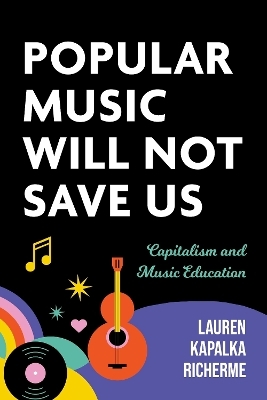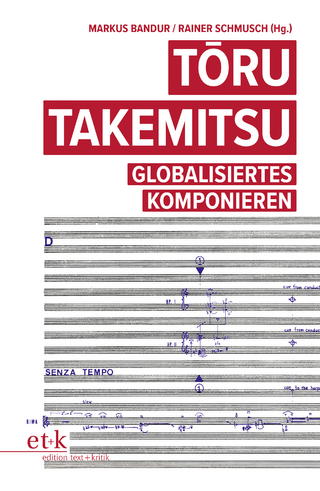
Popular Music Will Not Save Us
Indiana University Press (Verlag)
978-0-253-07243-6 (ISBN)
- Noch nicht erschienen (ca. Mai 2025)
- Versandkostenfrei innerhalb Deutschlands
- Auch auf Rechnung
- Verfügbarkeit in der Filiale vor Ort prüfen
- Artikel merken
Popular Music Will Not Save Us challenges music educators to rethink their philosophical stances in the face of contemporary capitalist values and explores the intersection of music education and globalized capitalism, unveiling how certain practices exacerbate material inequities and erode social responsibility. As author Lauren Kapalka Richerme unravels the complexities of music education, her analysis sheds light on how prevalent practices can inadvertently uphold capitalist ideals and reinforce individualism, unceasing accumulation, and precarity in the workforce. Given that no musical genre inherently challenges problematic aspects of capitalism, Richerme proposes that music educators instead focus on affective flows, or the circulation of sensations within pedagogical spaces, and consider four alternative positionalities: thriving within, surviving under, resisting, and challenging capitalism.
Popular Music Will Not Save Us advocates for a shift away from capitalistic individualism and inequities and toward a more equitable, affective pedagogical mode. Now is the time to transcend traditional boundaries and embrace a new paradigm that prioritizes social impact over commercial gain.
Lauren Kapalka Richerme is Associate Professor of Music Education at the Indiana University Jacobs School of Music. She is author of Complicating, Considering, and Connecting Music Education (IUP, 2020) and (with Peter Miksza, Julia T. Shaw, Phillip M. Hash, and Donald A. Hodges) of Music Education Research: An Introduction.
Preface
Acknowledgments
1. An Introduction to Capitalism and Music Education
2. Will Popular Music Save Us? Limitations of Relevance and Flexibility
3. Affective Flows and Ethical Commitments
4. Thriving within Capitalism: From Competition to Monopolization
5. Surviving Capitalist Alienation through Playful Composing
6. Resisting Capitalist Material Inequities through Dialogic Witnessing
7. Challenging Capitalist Material Inequities through Response-able Disruptions
8. Reconsidering Popular Music Making: Choosing Hopeful Adventures
Bibliography
Index
| Erscheint lt. Verlag | 27.5.2025 |
|---|---|
| Reihe/Serie | Counterpoints: Music and Education |
| Zusatzinfo | 1 b&w table |
| Verlagsort | Bloomington, IN |
| Sprache | englisch |
| Maße | 152 x 229 mm |
| Themenwelt | Kunst / Musik / Theater ► Musik ► Musiktheorie / Musiklehre |
| Sozialwissenschaften ► Pädagogik ► Allgemeines / Lexika | |
| Sozialwissenschaften ► Pädagogik ► Bildungstheorie | |
| ISBN-10 | 0-253-07243-3 / 0253072433 |
| ISBN-13 | 978-0-253-07243-6 / 9780253072436 |
| Zustand | Neuware |
| Informationen gemäß Produktsicherheitsverordnung (GPSR) | |
| Haben Sie eine Frage zum Produkt? |
aus dem Bereich


